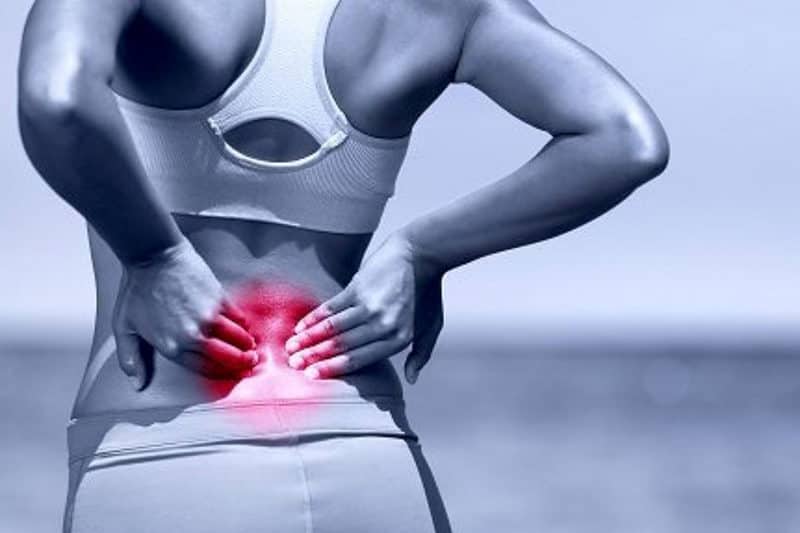
Muscle disease, called myopathy, may occur as a result of having an underactive thyroid (called hypothyroidism) or an overactive thyroid (called hyperthyroidism).
The good news is that the symptoms of thyroid-related myopathies, such as muscle pain, weakness, or stiffness, are generally mild and eased with prompt treatment of the thyroid disorder. That said, in less frequent scenarios, a person’s myopathy related to their thyroid disease can be severe and debilitating.
By gaining a better understanding of the muscle symptoms of thyroid disease (and how they would be accessed and treated by your doctor), you can hopefully get to the bottom of your discomfort and/or weakness.
In the meantime, a Therapeutic Massage could be your best friend. Please make sure to tell your therapist about your condition so they may adjust the pressure.
Please also Remember, it’s important to see your doctor if you notice new and/or significant muscle pain or weakness. While your thyroid may be the culprit, there are other health conditions that can cause muscle symptoms, and these conditions require a different treatment plan. From my personal experience a Functional Medicine Doctors might have a different approach to analyzing your thyroid if you are getting the same answers from your PCP.
Hypothyroid Myopathy
Muscle weakness, aches, and cramping are common in people with hypothyroidism.
Symptoms
While the weakness can be generalized, people typically experience it in the muscles that are closest to the center of their bodies, such as the thigh or shoulder. This can lead to problems climbing stairs or comb your hair.
In addition to muscle symptoms, a person may have an elevated creatinine kinase (CK) on a blood test. Creatinine kinase is a muscle enzyme that increases with a muscle injury. Interestingly, the CK level does not necessarily link to the severity of a person’s muscle pain.
Cause
While the precise cause of hypothyroidism-induced myopathy is still unclear, some experts speculate that the thyroxine (T4) deficiency seen in hypothyroidism leads to abnormal oxidative metabolism, which ultimately causes muscle injury and impaired muscle function.
Diagnosis
The diagnosis of hypothyroidism-induced myopathy is clinical, meaning your doctor will diagnose it based on your symptoms and physical examination. A blood test will be done to measure creatinine kinase. Your doctor may recommend other tests, like an electromyography or a muscle biopsy, to rule out other conditions, especially if your symptoms are severe.
Treatment
See a Functional Medicine doctor, or your PCP. Be reassured that thyroid hormone replacement with Synthroid(levothyroxine) can usually improve muscle symptoms, like cramps and stiffness, although this improvement may take weeks. Muscle weakness muscle generally takes longer to resolve, like several months.
Hyperthyroid Myopathy
Muscle weakness may develop in people with hyperthyroidism.
Symptoms
Due to muscle weakness, a person may have difficulty climbing stairs, rising from a chair, holding or gripping objects, and reaching their arms above their head. Rarely, in myopathy from hyperthyroidism, the muscles affected can include those that help you swallow and breath.
Interestingly, while muscle cramps and aches may occur, they are not as common as they are in a myopathy related to hypothyroidism.
The creatinine kinase level in the bloodstream is generally normal, despite the fact, there is muscle wasting. Like in hypothyroidism-induced myopathy, the number does not correlate with the severity of a person’s muscle symptoms.
Cause
Like muscle disease in hypothyroidism, the “why” behind myopathy in hyperthyroidism is also unclear. It’s likely the elevated level of thyroid hormones in the body is directly contributing. More specifically, these high thyroid hormone levels may lead to increased muscle protein degradation and muscle energy use.
Excerpts from VeryWell








Any supplements you can recommend to ease muscle tightness and fatigue, I have hypothyroidism been on 75 my for 6mths
Im trying to switch to armour thyroid. Instead of synthroid because my muscles in arms and legs became unbearable. Today may have just been a good day, but it’s day 6 and i felt way better today. Hopefully tomorrow is the same or better :) I hope you figure this out. Try Reddit for others ideas. Or a health foods store near you. Ibuprofen worked best for me. The gel tabs.
I was diagnosed with thyroid problems 8 years ago my legs stays ice cold all of the time and freezes up on me could that be because of the thyroid and I’ve had harness since 2020
Had treatment for Hypothyroidism for past 12 years taking 25 of Thyroxine related tablets but last year had to up it to 50. I get pain at side of my thighs which eventually does go. Had all other usual symptoms inc weight gain, luckily with the new medication this should be controllable I have 6 monthly regular blood tests.Just a parting word my16 year old husky cross collie has just been diagnosed and is now on treatment.
Hi Joyce, I have an overactive thyroid with graves disease, I ve had it nearly 10 years now , I’m currently on Carbimazole 15mg I’ve been getting reduced slowly, I’ve had 4 relapses ove the 10 yrs and have been over medicated twice leaving me underactive.
I had blood work done 4 weeks ago and still not heard from my endocrinologist however I visited my doctor last week with painful sciatica and weakness in knees, he gave me anti inflammatory medication and asked how my thyroid was doing? I replied I hadn’t heard off my endo with results so he got on his computer and said my TSH had jumped up telling him I’d become underactive…but he’s going to let endo deal with that.
I’m going to ring endo tomorrow I’ve had enough with the aches and pains while still having to work full time , I’m really struggling.
Ahh I’m sorry your little dog has been diagnosed with thyroid issues aswel , my cat was diagnosed with overactive thyroid 2 years before me, it’s all very strange isn’t it.
I hope your feeling better soon x
I am on 265.5 still have leg pain. Not sure what i am going to do .i have thyroid issues gor the past 20 yrs .they just keep upping my meds